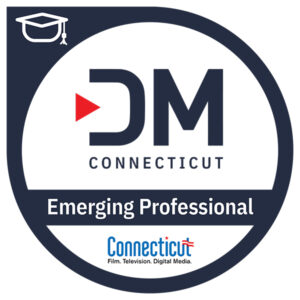“There’s always somebody interested in how people feel so that they can meet their consumer where they live.”
Episode 16 of Select+CT with John Murphy, University of Connecticut, Digital Media Department
Whether it be sneaky advertisements that are way too accurate, or weirdly timed pop-up ads, I think it’s safe to say that we might occasionally ponder or joke about the fact that our phones might be “listening” to us. Well, it’s true; mostly.
John Murphy, Assistant Professor at the University of Connecticut’s Digital Media Department, spoke with David DesRoches about the art of social media listening. The phrase “social media listening” is often misinterpreted for something less noteworthy; it’s the ability for anyone in any industry to use a platform(s) and listen in on publicly available conversations.
The social media listening industry is going online and listening in on anything public on websites, social media, and broadcast media; basically, whatever data we make available online is potentially sold to these platforms for analysis. Tweets, Reddit threads, Instagram comments, and TikTok videos are all public whether or not you’re aware of it. This trail of content allows marketers, brands, and anybody who wants to find out what our online behaviors say about our interests and potential buying habits.
“Topics can range from politics to how you feel about Nike sneakers,” John said. “There’s always somebody interested in how people feel so they can meet their consumer where they live.”
See Also: Content Marketing
Social media listening companies have agreements with Reddit, Twitter, etc., to gain insight into what we transfer from our minds to the screen. When you’re employed by one of these info-seeking agencies, balancing social media listening so that it doesn’t carry over into cyberstalking (a crime) is required. From a company perspective, John emphasizes that you need to know from an ethical standpoint what you will do with collecting that legal & public information.
“Rule of thumb is if it feels icky, don’t do it,” he added. How far do you go into looking into the data? You don’t want to be tracking a human being by their every online move, “you have to take it upon yourself to run an ethical and clean chop of the data.” he said.
This particular topic reminds me of the Netflix series called “The Social Dilemma.” The film exposes social media creators & employees for building massive collective profiles of us using our many accounts. This means there is a digital persona of us in their databases that they can use to sell advertisements or commercials to determine what they think we might like or how we could be influenced in political campaigns.
For digital content creators, understanding social media listening is crucial because not only could you be producing content in response to data gathered from this process, but you are also sharing content that contributes to the social media listening system.
Featured Program
Fairfield University (located in CT) offers two excellent bachelor’s of arts in communications and public relations. One of their statements is “We examine the verbal and nonverbal messages that people exchange in various settings.”. Check out these programs here.
DMCT Micro-Credentials

If you are unsure how your skills connect to Connecticut’s growing Digital Media industry, I encourage you to enroll in DMCT’s first micro-credential course, The Emerging Practitioner. I am a course graduate and learned many things to assist my transition from University to a Career in CT and beyond!